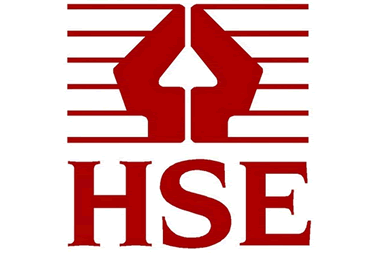The Health and Safety Executive is a government agency responsible for the regulation and enforcement of workplace health, safety and welfare throughout the UK. As part of their role they publish a number of important approved codes of practice and health and safety guidance documents that form an essential framework to support the promotion of regulatory compliance. In this article our legionella and water safety experts review the legal status of two of their primary legionella control publications, ACOP L8 and HSG274 and explain the significance of the information and guidance provided. The UK’s Health & Safety Executive publishes several important Approved Codes of Practice (ACOPs), supported by guidance documents on a range of important subjects, including the control of Legionella bacteria and Legionnaires’ disease in the workplace. ACOPs describe the preferred or recommended methods that can be used (or standards to be met) to comply with regulations and the duties imposed by the Health and Safety at Work etc Act. The guidance documents (HSGs) provide supporting advice to help you understand how to comply with the law; explanations of specific legal requirements; specific technical information or references to further sources of information to help you comply with your legal duties. The legal status of the ACOP L8 and HSG274 which deal with the control of Legionella bacteria and Legionnaires’ disease are explained here: The HSE’s ACOP L8 which deals with the control of legionella gives practical advice on how to comply with the law. If you follow the advice provided you’ll be doing enough to comply with the law. However, you can use alternative methods to those set-out in the ACOP L8 in order to meet your legal obligations. But remember… ACOP L8 has a special legal status. If you are prosecuted for breach of health and safety law, and it’s shown that you did not follow the advice given, you will need to show that you have complied with the law in some other way or a Court will find you at fault. The guidance given in HSG274 is not compulsory, unless specifically stated, and you are free to take other action. But remember… if you do follow the guidance you will normally be doing enough to comply with the law. Health and safety inspectors may refer to this guidance when they inspect your premises. Our teams of legionella and water safety specialists support those responsible for the control of waterborne pathogens including Legionella bacteria, helping them to protect people and meet their health and safety obligations in this specialist area. We deliver professional water safety risk assessments for legionella, pseudomonas and other waterborne pathogens, water testing, independent compliance auditing, City & Guilds training and other environmental risk management services that help keep staff and others safe.HSEs ACOP L8 & HSG274… Are they law?

What’s the legal status of the HSEs ACOP L8 & HSG274… Are they law?
What are ACOPs?
What are HSG guidance documents?
Approved Code of Practice (ACOP) L8
HSG274 Guidance
Legionella and water safety specialists
To speak with one of our legionella specialists’ call us today on 0330 223 36 86 or contact us here …

 Can Hard Water & Limescale Increase Legionella Risks?
Can Hard Water & Limescale Increase Legionella Risks?